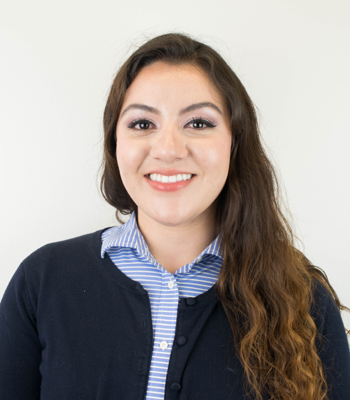Interview with Gala Ledezma
UCSD Psychology BS ’18 with Specialization in Social Psychology and a Minor in Public Service, attending Master of Public Policy Program, UCSD School of Global Policy and Strategy
1. What did applying to graduate school involve?
I had to take the GRE, complete UCSD’s graduate application online, write a personal statement and obtain three letters of recommendation.
2. Can you provide a general timeline of how the application process went?
I had been looking at several different masters programs during my first year of undergraduate study. All of the programs I was interested in required the GRE, so I took the test by the end of my second year; I took it a second and final time at the beginning of my third year. Since the early deadline for the program was December 15th, and I was a third-year senior, I started drafts of my personal statement and asked for my letters of recommendation by the end of October. I completed and submitted the application a couple of days before the deadline. The Master of Public Policy program at the School of Global Policy and Strategy ended up being the only program I applied to.
3. Were there any resources that you relied on that were especially helpful in the application process? Were there any persons that helped you especially?
I emailed the admissions office at the School of Global Policy and
4. Did you have to be interviewed, and if so, what were the interviews like?
I did not have to be interviewed.
5. Did you have to take any additional classes beyond those required for your major, in order to qualify for the programs you applied to?
Because my psychology courses were not totally relevant to the program, I was recommended, but not required, to take a few courses on public policy or international affairs. I ended up taking policy analysis, as well as a course dealing with
6. Are there any other tips that you would offer to students that are considering applying for the same programs that you applied (and were accepted) to?
Don’t be intimidated to look at graduate programs outside your undergraduate studies! I wasn’t sure if I would be able to get into a public policy program as a psychology major, but I realized that different majors offer a valuable perspective.
7. What would you attribute your success in graduate applications to?
I would attribute my success in the graduate application to the thorough research I did on the program, as well as my letters of rec. I looked up everything about the program: what the average admitted student was like, how many students they admitted each year, what kinds of courses they offered in their programs, what kind of research their faculty conducted. I used all of this information to attune my personal statement to this particular program. I was also strategic with my letters of recommendation; I would ask each person to highlight different qualities, which presented me as a well-rounded candidate.
